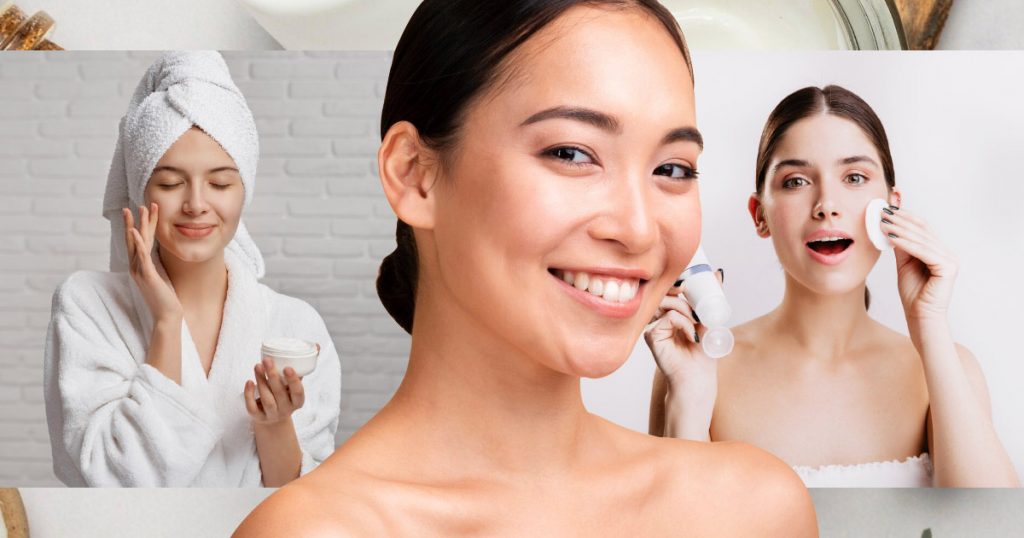Regarding skincare, two terms often come up: hydrating and moisturizing. While they’re sometimes used interchangeably, they address different needs for your skin. The American Academy of Dermatology recommends choosing products that are made for your skin type, like dry or oily skin. To attain healthy, glowing skin, you have to understand what each term means, how they work, and how to include them in your daily regimen.
What Does Hydrating and Moisturizing Mean?
Hydrating refers to adding water to your skin cells to maintain or restore the skin’s natural balance. Hydration is essential for keeping skin plump, smooth, and supple. Without adequate hydration, your skin might dry, resulting in tightness, dullness, and fine wrinkles.
Hydrating products, often known as hydrators, include substances like as hyaluronic acid, glycerin, and aloe vera. These compounds draw water from the environment and help keep it in your skin.
Benefits of Hydrating Your Skin
- Reduces the visibility of fine lines and wrinkles.
- Improves the skin’s suppleness and texture.
- Leaves your skin feeling refreshed and radiant.
Moisturizing, on the other hand, focuses on retaining moisture and preventing water loss. It provides a barrier on the skin, shielding it from dryness and external stresses. Moisturizers are typically thicker in texture and often contain ingredients like ceramides, shea butter, and oils.
Moisturizing is necessary to maintain the skin’s barrier function, which combats dryness and irritation. Hydrating gives water to your skin; moisturizing keeps it there.
Benefits of Moisturizing Your Skin
- It prevents dryness and flakiness.
- Strengthens the skin’s natural barrier.
- Protects against external elements such as pollution and extreme weather.
Hydrating vs Moisturizing: The Key Differences
Hydrating and moisturizing are not the same thing. To understand the difference between hydrating and moisturizing, think of hydration as quenching your skin’s thirst and moisturizing as sealing in that hydration.
Purpose
Hydrating adds water to the skin, while moisturizing locks in moisture to prevent water loss.
Key Ingredients
Hydrating products use hyaluronic acid, glycerin, and aloe vera, while moisturizing products include ceramides, shea butter, and natural oils.
Primary Benefit
Hydrating plumps and refreshes the skin, while moisturizing protects and strengthens the skin barrier.
Ideal For
Hydrating is suited for dehydrated skin that lacks water, while moisturizing is ideal for dry skin that lacks oil.
Do You Hydrate or Moisturize First?
If your skincare routine includes both a hydrator and a moisturizer, you may wonder which comes first. The general rule is to apply lighter, water-based products (hydrators) before heavier, oil-based products (moisturizers). This helps the hydrator penetrate the skin deeply while the moisturizer creates a protective barrier.
Steps to Follow:
- Start with a gentle cleanser to remove impurities.
- Use a serum or gel containing moisturizing substances like hyaluronic acid.
- Apply a moisturizer to keep your skin hydrated and protected.
By following this sequence, you ensure maximum efficacy for both hydrating and moisturizing products.
Moisturizer vs Hydrator: Which One Do You Need?
Choosing between a moisturizer and a hydrator depends on your skin type and concerns.
When to Use a Hydrator
- Your skin feels tight and looks dull.
- You notice fine lines caused by dehydration.
- You live in a dry climate where your skin loses water easily.
When to Use a Moisturizer
- Your skin feels rough, flaky, or irritated.
- You have a weakened skin barrier.
- You want more protection from environmental damage.
For most people, using both a hydrator and a moisturizer is ideal to address both water and oil needs.
Common Misconceptions About Hydration and Moisturizing
Myth: Oily Skin Doesn’t Need Hydration
Even oily skin can become dehydrated. Hydration is about water, not oil. Using lightweight, non-comedogenic hydrating products can keep oily skin balanced.
Myth: You Only Need One Product
Hydration and moisture complement each other. Neglecting one might cause an imbalance that results in breakouts, dryness, or irritation.
Myth: Drinking Water Is Enough
While staying hydrated internally is essential, it doesn’t replace the need for topical hydration. Your skin benefits from products that directly address its hydration and moisture levels.
You Need Both Hydration and Moisturization in Your Skincare
Hydration adds water to your skin, and moisturizing locks it in to protect and strengthen. Both are essential for healthy, glowing skin. Neglecting one can affect the other, so balance is key. Tailor your routine to your skin’s changing needs for the best results.
